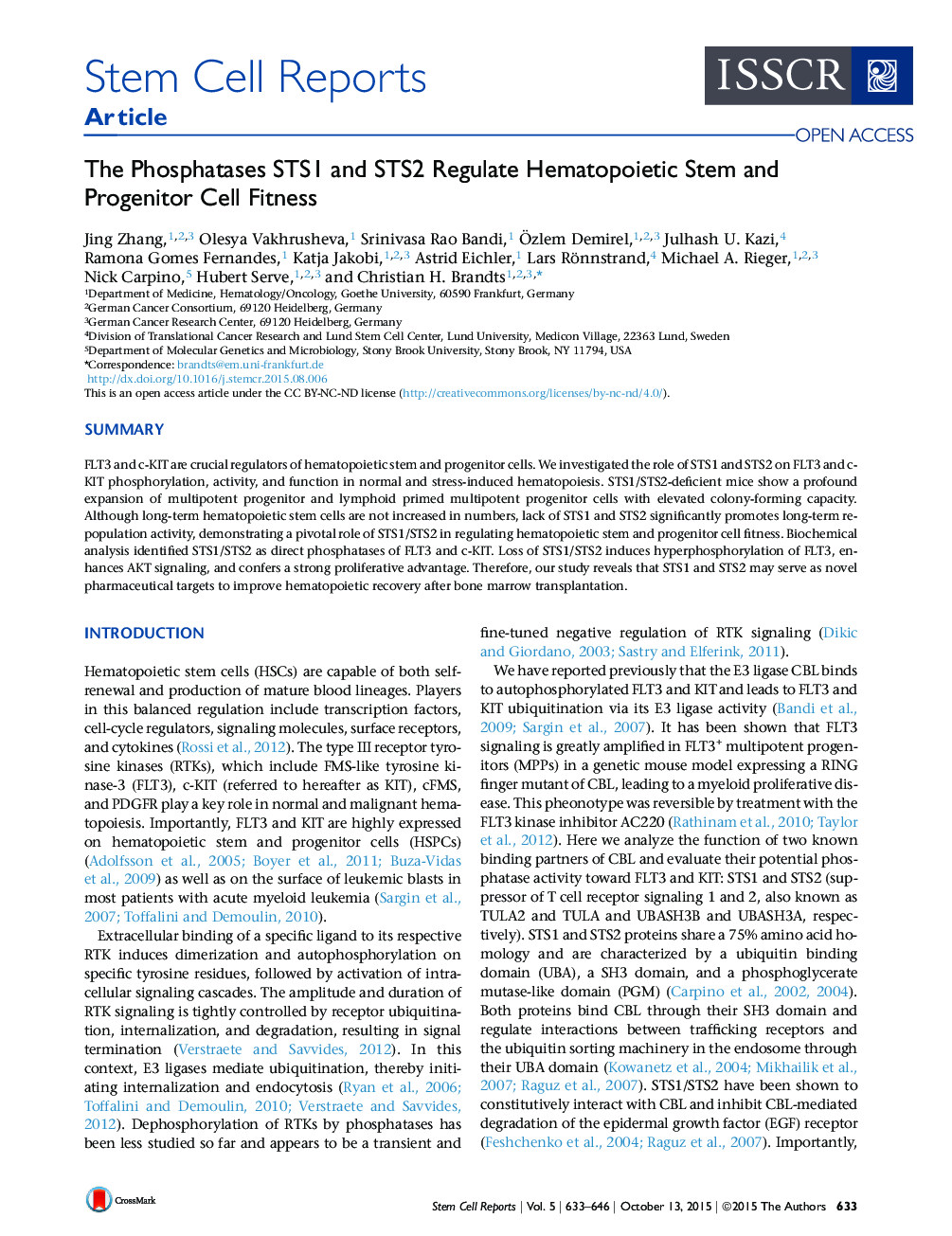| Article ID | Journal | Published Year | Pages | File Type |
|---|---|---|---|---|
| 2093429 | Stem Cell Reports | 2015 | 14 Pages |
•Hematopoietic stem cells lacking STS1/STS2 display significantly enhanced fitness•STS1 and STS2 are phosphatases of FLT3 and c-KIT•Lack of STS1/STS2 activates FLT3 and downstream signaling
SummaryFLT3 and c-KIT are crucial regulators of hematopoietic stem and progenitor cells. We investigated the role of STS1 and STS2 on FLT3 and c-KIT phosphorylation, activity, and function in normal and stress-induced hematopoiesis. STS1/STS2-deficient mice show a profound expansion of multipotent progenitor and lymphoid primed multipotent progenitor cells with elevated colony-forming capacity. Although long-term hematopoietic stem cells are not increased in numbers, lack of STS1 and STS2 significantly promotes long-term repopulation activity, demonstrating a pivotal role of STS1/STS2 in regulating hematopoietic stem and progenitor cell fitness. Biochemical analysis identified STS1/STS2 as direct phosphatases of FLT3 and c-KIT. Loss of STS1/STS2 induces hyperphosphorylation of FLT3, enhances AKT signaling, and confers a strong proliferative advantage. Therefore, our study reveals that STS1 and STS2 may serve as novel pharmaceutical targets to improve hematopoietic recovery after bone marrow transplantation.
Graphical AbstractFigure optionsDownload full-size imageDownload as PowerPoint slide
